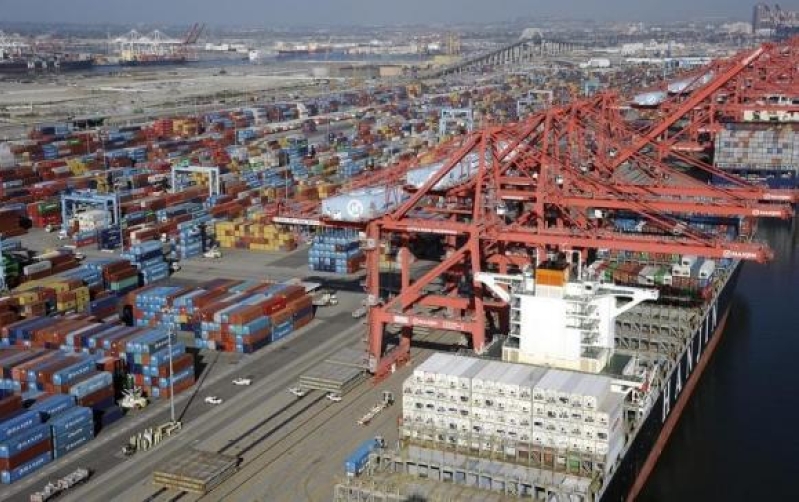
The Lunar New Year festivities may have been dampened a little bit in the United States thanks to the work slowdown at seaports across the West Coast and could have an effect on the entire economy.
According to Hiroko Tabuchi and Alexandra Stevenson of the New York Times, the gridlock on the West Coast has led to shortages on essential items for the start of Chinese New Year celebrations across the country. Jacklyn Sher, manager of Los Angeles food importer H.C. Foods, described how the delays have affected her business.
"There's not enough sticky rice to make the dumplings," Sher said. "We don't have holiday cookies or mung bean cakes. We're running out of soy sauce."
Sher told the New York Times that her company only received one container, which was a shipment that was due six weeks ago. H.C. Foods normally brings in 50 to 100 containers per month according to her.
"Everything is out there, on the water," she said.
According to Pete Carey of San Jose Mercury News, the government has sent in Secretary of Labor Thomas Perez to resolve the dispute. The New York Times reported that the current situation at West Coast seaports is due to a protracted labor dispute between ship owners and the longshoremen's union.
"Perez flew into the Bay Area over the weekend in response to increasingly urgent calls for federal intervention from retailers, growers and small businesses -- all suffering from at least temporary damage to their bottom lines," Carey wrote. "He is working to bring an end to bitter talks between the International Longshore and Warehouse Union and the Pacific Maritime Association, representing shippers and terminal operators at 29 West Coast ports."
The labor dispute has affected businesses across the United States. Taylor Chow, a food importer for his Oakland-based company American Tai Wah Trading and a spokesman for the Oriental Food Association, told Carey that the period around Chinese New Year typically generated "double or triple normal sales over two months."
"Our Chinese New Year is totally ruined," Chow said.
Carey reported that truckers such as Henry Osaki have also been negatively impacted by the ongoing labor dispute, which has lasted for nine months so far.
"I don't know what it (Perez's arrival) is really going to do," Osaki said. "The bottom line is that it's between the PMA and the ILWU. He might have some influence on them, but ultimately they're going to make the final decision."
The work slowdown has even affected businesses outside those celebrating the Chinese New Year. Christopher H. Peterson, chief financial officer of Ralph Lauren, explained to the New York Times that his company managed to bypass the West Coast slowdown through air freights and other alternative measures.
"We also wound up routing a lot of product via water routing, so we shifted around the U.S. and received it in the East Coast ports," Peterson said.
The National Retail Federation warned that the U.S. economy could lose $2.1 billion a day if a full strike or lockout occurs at the West Coast ports. According to the New York Times, a 2002 shutdown of those same ports, which lasted 10 days, cost the economy about $1 billion a day.






